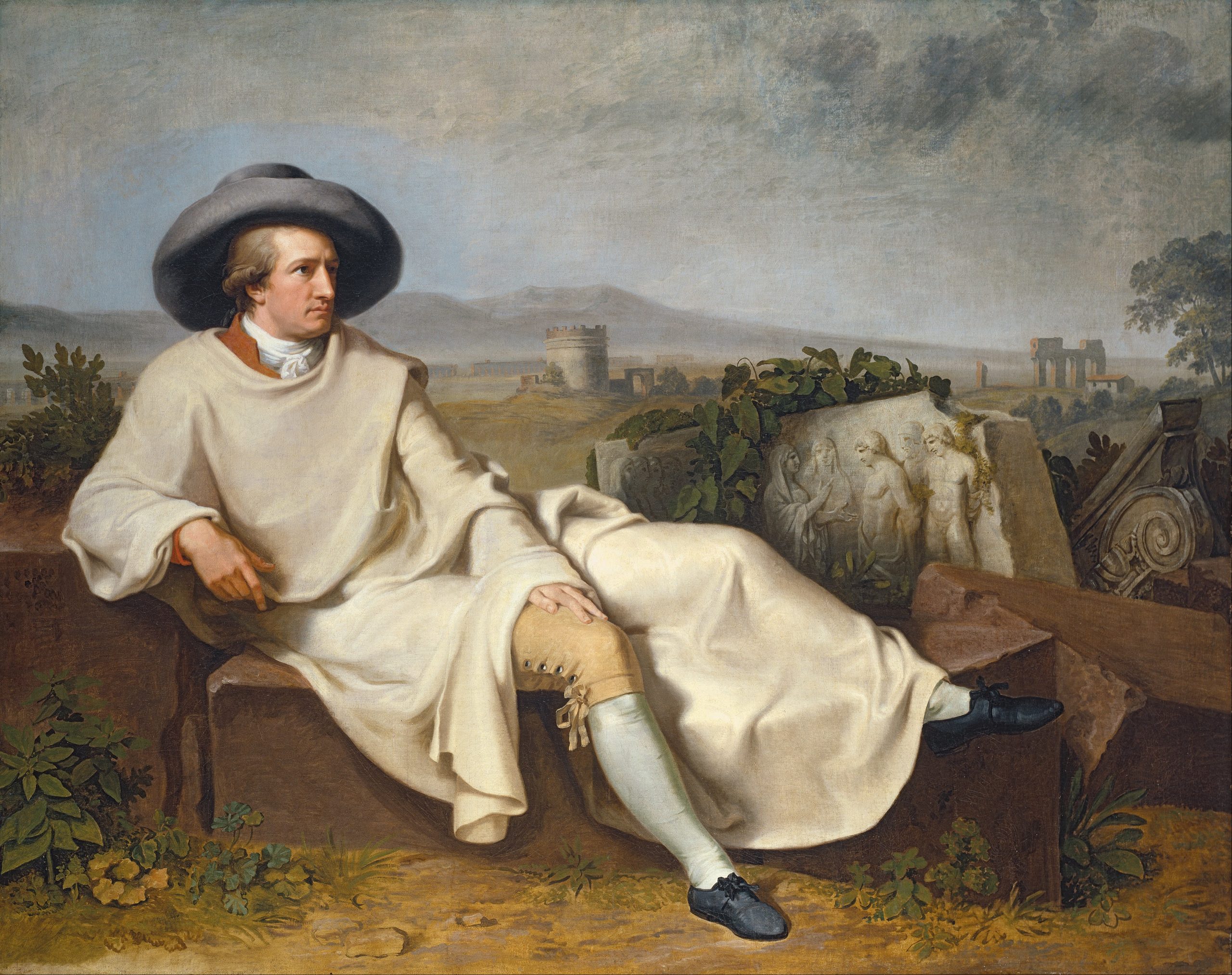
Birgitta Hoffmann
On Saturday, 18th of July, I will be offering a dayschool on Goethe and the Grand Tour.
Isn’t that a contradiction? The Grand Tour is in origin a deeply English and later British Institution. Established in the mid 17th century as a way for nobility to extricate itself from political problems in England, it became in the 18th century a finishing school for the young men/late teenagers of the British nobility who were sent with their ‘bear-keepers’/teachers to familiarise themselves with the cultural highlights and high society in Europe, especially in Italy and return laden with statues, architectural plans and paintings 3 years later.
So how does a successful German writer and court official in his early forties fit into this? The answer lies in his age and in the time of the publication of his memoirs. When he travelled in 1786-1788 the grand tour was at the height of fashion. The idea had spread to all over Europe, The King of Sweden was travelling, so was the Tsar of Russia and everybody who could afford it. There were travel guides, there were picture books, there were diary, it was the ‘in’ thing to do. Hardly, surprising to find Goethe joining in.
However, Goethe decided to give this tour his very own flair. He set out alone with a backpack on the post chaises – the first backpacker in Europe and stayed not in fashionable hotels but with artist friends and wayside inns, always accompanied by his book box. Well read he reflects on what it means to look at art (ancient and otherwise) and thus joining the discussion started by Winkelmann, what it means to travel and what it does to you. In between, visits and discussions he falls out with his girlfriend and tries to get back into her good graces. A forty year old in the grips of a midlife crisis, a very literate man in a mid-life crisis and the first one to describe it in all its glory.
But I am not a literature critic or a philosopher/psychologist, so why is this so interesting for an archaeologist and historian? The answer lies in the publication date. Goethe returned from Italy in June 1788, France was already in turmoil, a year later the French Revolution would start and until June 1815 Europe was increasingly a theatre of war, making travel more and more hazardous until Napoleon’s defeat at Waterloo in the summer of 1815.
25 years is a long time, time enough for a fashion of the nobility to die. But this is, where Goethe comes in. He published his memoirs of his time in Italy in 1815, twenty five years after the event. He was now an arbiter of taste in Europe, a polymath, a writer, a thinker. And his memoirs restarted the Grand Tour as a European phenomenon, not just for the nobility but also for the middle classes. Not just as an educational chore/opportunity, but very much as an emotional experience in the age of the Romantics. Thanks to him, travelling to Italy became the romantic dream of half a continent: off to the country where the oranges and lemons blossom to become more human, to experience the Italian way of life as well as the cultures of the past.
Without him, Thomas Cook and his tourists would have felt more than a little bit lost.
If you want to know more, there are still places on the course, you can find all the details here.
I look forward to seeing you on Saturday.